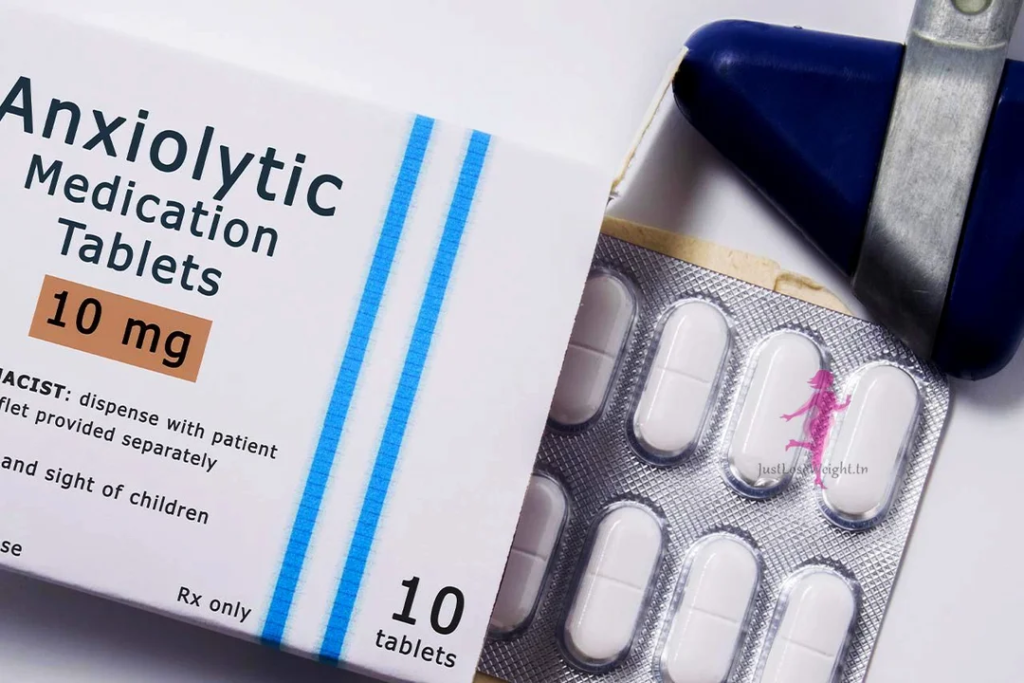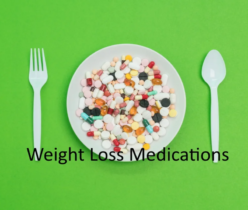Psychotropic drugs: Managing weight gain
Although psychotropic drugs can significantly improve mental health and well-being, they often have unwanted side effects. A specific side effect of many psychotropic drugs is medical weight gain.
This article examines how these drugs cause weight gain and what can be done to mitigate this unwanted effect of many psychoactive drugs.

What types of psychotropic drugs are there?
There are five main types of psychotropic drugs. Stimulants are unlikely to cause weight gain. Many of these drugs reduce appetite and can cause weight loss as a side effect. These drugs are not discussed in this article.
Antidepressants can be divided into several classes.
- TCAs (tricyclic antidepressants) increase levels of serotonin, norepinephrine, and dopamine in the brain.

- SSRIs (selective serotonin reuptake inhibitors) increase serotonin levels in the brain.
- MAO inhibitors (monoamine oxidase inhibitors) increase levels of serotonin, dopamine, and norepinephrine in the brain.
- SNRIs (serotonin-norepinephrine reuptake inhibitors) increase levels of serotonin and norepinephrine in the brain.
Why do antidepressants change weight?
All of these drugs increase serotonin levels in the brain. Serotonin regulates mood and affects appetite, but the length of treatment can have different effects. Short-term use reduces impulsivity and increases satiety.
This reduces food intake and may lead to weight loss. However, long-term use (more than a year) can downregulate serotonin receptors and lead to high-carbohydrate foods such as bread, pasta, and candy.
The antidepressants with the highest risk of weight gain are amitriptyline, citalopram, mirtazapine, nortriptyline, trimipramine, paroxetine, and phenelzine.
Why do antipsychotics exacerbate obesity disorders?
Antipsychotics can be divided into two classes:
typical antipsychotics and typical antipsychotics. Both classes can cause weight gain, but atypical antipsychotics differ in that they have fewer side effects of movement disorders.
Like antidepressants, antipsychotics act on chemical messengers in the brain involved in appetite control and energy metabolism: serotonin, dopamine, histamine, and muscarinic receptors.
In addition to causing weight gain, antipsychotics can affect glucose metabolism, raise cholesterol and triglyceride levels, cause hypertension, and exacerbate metabolic syndrome and obesity-related diseases. The antipsychotics most likely to cause weight gain are olanzapine, risperidone, and quetiapine.
What about anxiolytics and weight changes?
There is no clear association between conventional anxiolytics such as benzodiazepines and weight gain. However, many antidepressants are also used to treat anxiety and, as explained above, can cause weight gain.
One drug that has been associated with weight gain is diphenhydramine (the active ingredient in Benadryl, which is also used in many over-the-counter sleep aids).
Diphenhydramine may contribute to weight gain by increasing hunger and fatigue, which may decrease a person’s activity. Adjuvant medications have not been associated with weight gain.

Trazodone, a drug for depression and insomnia, decreases excess serotonin in some areas while increasing serotonin levels, which, as mentioned above, affects appetite.
Mood stabilizers are commonly used to treat bipolar disorder and may increase appetite and cause metabolic changes.
Some antidepressants and antipsychotics are also used to treat bipolar disorder, but mood stabilizers such as lithium, valproate, divalproex sodium, carbamazepine, and lamotrigine are the most common to treat bipolar disorder.
It is a commonly used mood stabilizer. These drugs are known to increase the risk of weight gain.
There are effective strategies to minimize weight gain.
For people taking psychiatric medications for mental illness, strategies exist to minimize weight gain. Optimizing your lifestyle and daily habits is key.
These include eating a healthy diet containing whole foods, limiting processed foods and added sugars, exercising, reducing stress, and getting enough sleep.
It has the double effect of minimizing growth. Cognitive and behavioral strategies guided by a psychologist can help you avoid cravings for sweets and carbohydrates.
Another strategy he has for limiting weight gain is to work with doctors to determine if there are suitable alternative pharmacological options that reduce the risk of weight gain.
In addition, the antidiabetic drug metformin has been shown to be effective in treating and preventing psychotropic drug-induced weight gain.
Other drugs prescribed for weight loss may also be suitable to combat psychotropic weight gain.
It’s important to remember that almost all medications can cause side effects, and it’s important to make sure the benefits of taking them outweigh the risks.
It may be helpful to consult an obesity medicine expert to determine which option is best for you.




